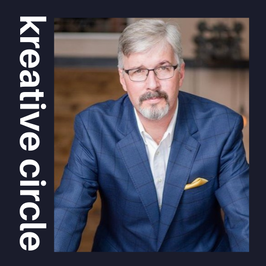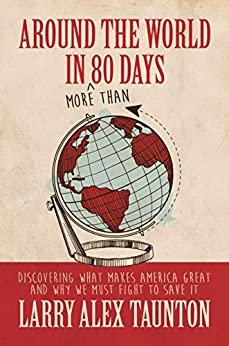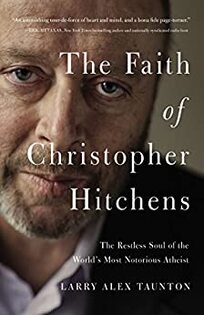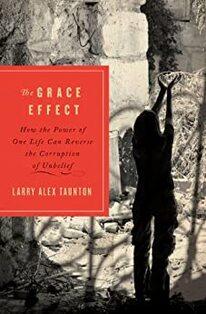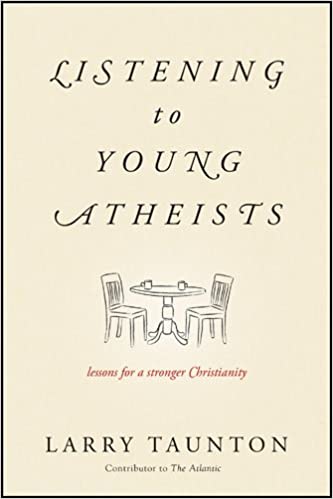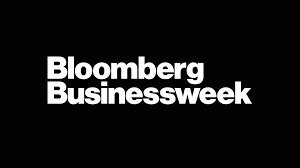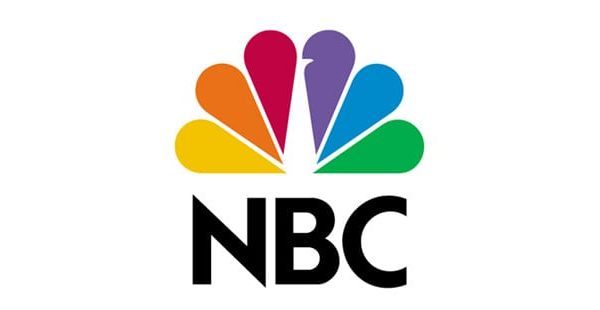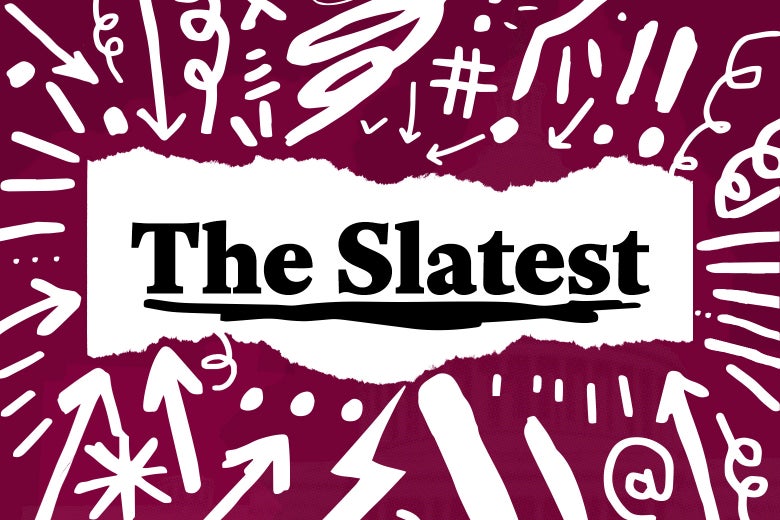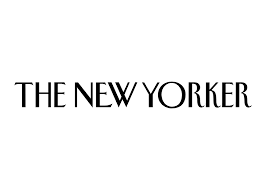Larry, Welcome to Kreative Circle. You're a celebrated award-winning author, freelance columnist, and producer among several roles you host. If you have to choose between writing more books or producing more speaking engagements, which one would you choose and why?
Thank you, Sasha. I love writing. The speaking engagements are popular, but they are best, in my view, when they are an outgrowth of something that I have written.
Fixed Point Foundation publicly defends Christianity by empowering Christians and challenging skeptics. The foundation invests its resources in speakers, hosting events and sharing faith based material. What led to the inception of this respectable organization that is recognized as a fair and sensible platform for exploring faith from different perspectives while maintaining the integrity of Christianity?
I cut my teeth in an academic setting. There, as now in the public space, there was very little room for real, fair, sustained dialogue. It was hard to hear ideas as those presenting them were marginalized and their ideas politicized. We needed a space for the development of ideas, for conversation, to “reason together,” to use a biblical phrase. Thus, Fixed Point was born. In recent weeks as I and many other Americans have grown frustrated with presidential and vice presidential debates where the moderators confuse their role with that of participants, I have again wondered if Fixed Point doesn’t need to facilitate these kinds of discussions once again.
You've also participated in faith based debates with Christopher Hitchens (God or No God?) and Michael Shermer (Do We Need God?). Have any of your views evolved on any lifestyle or religious topics during your career from engaging in at least twenty debates of such nature? Have you encountered any surprising epiphanies about yourself in the process?
I’ve always been a bit rougher around the edges than the typical evangelical. I grew up on military bases and around rough men, so I’ve never neatly fit the evangelical mold that some want to apply to me. That said, I am less legalistic than I once was. Legalism is a product of the human heart, not religion, and it is at its worst, I think, in our youth. Perhaps age and experience have mellowed me a bit or maybe it is the result of my own mistakes. Regardless, I have come to appreciate the heart of the Christian message more in recent years.
In terms of my debates with atheists, they have largely been disappointing. Even the brightest of them rely on old arguments that are simply repackaged for a new generation. Perhaps my greatest epiphany has been a rather cynical one: contrary to what I believed when I first entered the public arena, truth seldom matters. That was naive.
Your book "The Grace Effect" is inspired by your adopted daughter Sasha's life story in Ukraine. How did you two cross paths? How soon did you recognize Sasha was meant to be a part of your life? What has she taught you about life, faith and fatherhood?
I did not meet Sasha until her adoption was well underway. My wife and my three boys participated in a mission trip to bring relief to children languishing in Ukrainian orphanages. There they met Sasha who, as an HIV-positive child, had little hope of being adopted. Lauri proposed we adopt her. We did. She had a huge influence on us all in many ways, not the least of which was the fact that I grew up in a family of boys and had all boys. When Sasha, with all of her girliness, entered our household, it was … an adjustment! But her life, her suffering, her perspective, is much needed in a country were so many see themselves as victims when they aren’t. Not really. By contrast, Sasha has known suffering on a scale that beggars the imagination. That continues to shape my perspective.
The book "The Faith of Christopher Hitchens" presents insights into Christopher's personal beliefs throughout different milestones of his life. If your friend Christopher can hear you from the other side (granted 'life after death' exists), what would you like him to know about the global state of affairs today? Is there anything you would ask Christopher about since he's already on the other side?
I would tell him that he’s needed! America, his adopted country, is committing suicide, and I am quite confident that he would savage a Democratic Party that has changed so radically in the decade since his death. In his final years, he had become an American patriot, and he grew to detest the anti-Americanism that has come to characterize the Left.
"Around the World in More than 80 Days" explores what makes America great among 195 countries in the world. You've visited at least 55 of these countries throughout your life's journey. What benchmarks were applied to narrow down the list of countries that you would visit and research for this specific book?
I was in search of a winner for a mythical prize: The World’s Greatest Country. When making a list of those countries that have some reasonable claim to that prize, the list is small. No more than ten countries would make most lists. I included all of those that most would put on such a list, and most of those are there for entirely statistical reasons: wealth, availability of healthcare, clean water, etc. Is that a legitimate measure of greatness or only a component of it? I would explore that question on the journey.
Then, to season the narrative and give the reader a broader perspective, I included another dozen or so countries. And why not? According to the data, 69 percent of Americans have never been abroad. I would wager that most of the other 31 percent have only been to, say, Mexico, Canada, or on a Caribbean cruise. The point is, most have no means of properly evaluating a claim like that made by the New York Times last year in the headline: “America is not great.” The world disagrees.
From your research and travels, which country impressed you in how they invest their resources (human capital and money) to operate a self-sufficient economy without relying much on their neighboring countries or global organizations for assistance?
Oh, my. That’s a tough one. It is cliché to say so, but the world is deeply interconnected. Japan, for instance, a very impressive country for many reasons, has almost no natural resources. Africa, with its vast natural resources, is dependent upon the rest of the world to access them. South America is generally dominated by corrupt regimes. The United States would have to be near the top of this list, I think, along with Canada, and the democracies of Western Europe. But I speculate here. This was not a question I explored for this project.
Larry, what are the top three travel essentials you cannot live without?
I discuss this in the book. Indeed, I could write a book about this topic.
Top three essentials (assuming food, passport, airline ticket, and accommodations are all included):
1. The savvy travel takes twice as much money (cash) as he thinks he will need.
2. A global phone. That gives you access to maps, up-to-date news on the political situation, transportation, first aid, and much more.
3. Attitude. Go expecting nothing to go as planned. Frankly, that’s when the fun begins, forcing you to extemporize, take chances, and get outside of your comfort zone. I have learned that you don’t know someone until you have traveled with them, and even then you don’t really know them until that travel brings some measure of stress, be it in the form of fatigue, danger, or uncertainty. A travel companion who is prepared to roll with the punches is a treasure. One who isn’t becomes a burden and perhaps even hazard to your safety. Real adventurous international travel—as distinct from traveling the safety of a tour group—is not for “Karens.”
What packing tips can you provide to those traveling on a budget and/or time constraints?
Packing tips:
- Get the Around the World ticket. Most airlines have one and they are the most efficient way to see the world.
- If you adhere to no. 1 above, you can afford to pack less. Don’t be afraid to buy things along the way or dump others as they are no longer needed. Move light and fast.
- Be flexible. A rigid schedule is a recipe for misery if not disaster. Like a place? Stay longer. Hate another? Move on. Don’t feel that everything has to be your way. Be willing to do things differently as the situation requires.
- An up-to-date knowledge of where he is going and how to get out quickly (if necessary)
- Don’t make the often disastrous mistake that so many naive Americans make: believing the rest of the world is a safe place where people think like you. It isn’t and they don’t.
As a freelance columnist, are there any redundant topics that you believe need to be retired in the news and media?
Good question. Yes, the stereotyping — which is quite bigoted — of evangelicals and so-called “red state” Americans.
In your opinion, has the quality of journalism improved in the past decade, or has it stagnated due to society's need to produce 'fast food news' to appease hungry minds seeking quantity over quality?
I could never have imagined it so bad as the current situation. MSM and Big Tech, rather than reporting news and facilitating it, have become active participants in a cultural war, suppressing dissent and spinning news to fit a political agenda. It is atrocious. Where are the Ted Koppels and the Tom Brokaws? Gone, I am afraid.
What guidance would you offer to a student pursuing a career in journalism today?
Don’t — unless you are prepared to sell your soul.
You've taken many risks in life as well overcome hurdles in your path with grace. Do you believe you're living on borrowed time? What new adventures do you want to share with your family, advocates and audiences moving forward?
Another interesting question. Yes, I do believe I am on borrowed time. I suffered a life-altering accident five years ago when I was hit by a car while cycling. I was not expected to live. There are many residual physical issues from that accident. It changed me to this extent: I don’t hold my life quite so dear. I was declared dead on the scene of that accident and was then revived. I am reconciled to my mortality. I am prepared to die. Thus, I am prepared to take risks. Not silly ones, mind you (though my wife would dispute that), but worthwhile risks. There is something liberating in that approach to life.
Please share with audiences how they can support your work.
Send money!! Buy my books!! ;)
Website: www.larryalextaunton.com | About Larry | Amazon: Profile & Books | Twitter: @LarryTaunton
Thank you, Sasha. I love writing. The speaking engagements are popular, but they are best, in my view, when they are an outgrowth of something that I have written.
Fixed Point Foundation publicly defends Christianity by empowering Christians and challenging skeptics. The foundation invests its resources in speakers, hosting events and sharing faith based material. What led to the inception of this respectable organization that is recognized as a fair and sensible platform for exploring faith from different perspectives while maintaining the integrity of Christianity?
I cut my teeth in an academic setting. There, as now in the public space, there was very little room for real, fair, sustained dialogue. It was hard to hear ideas as those presenting them were marginalized and their ideas politicized. We needed a space for the development of ideas, for conversation, to “reason together,” to use a biblical phrase. Thus, Fixed Point was born. In recent weeks as I and many other Americans have grown frustrated with presidential and vice presidential debates where the moderators confuse their role with that of participants, I have again wondered if Fixed Point doesn’t need to facilitate these kinds of discussions once again.
You've also participated in faith based debates with Christopher Hitchens (God or No God?) and Michael Shermer (Do We Need God?). Have any of your views evolved on any lifestyle or religious topics during your career from engaging in at least twenty debates of such nature? Have you encountered any surprising epiphanies about yourself in the process?
I’ve always been a bit rougher around the edges than the typical evangelical. I grew up on military bases and around rough men, so I’ve never neatly fit the evangelical mold that some want to apply to me. That said, I am less legalistic than I once was. Legalism is a product of the human heart, not religion, and it is at its worst, I think, in our youth. Perhaps age and experience have mellowed me a bit or maybe it is the result of my own mistakes. Regardless, I have come to appreciate the heart of the Christian message more in recent years.
In terms of my debates with atheists, they have largely been disappointing. Even the brightest of them rely on old arguments that are simply repackaged for a new generation. Perhaps my greatest epiphany has been a rather cynical one: contrary to what I believed when I first entered the public arena, truth seldom matters. That was naive.
Your book "The Grace Effect" is inspired by your adopted daughter Sasha's life story in Ukraine. How did you two cross paths? How soon did you recognize Sasha was meant to be a part of your life? What has she taught you about life, faith and fatherhood?
I did not meet Sasha until her adoption was well underway. My wife and my three boys participated in a mission trip to bring relief to children languishing in Ukrainian orphanages. There they met Sasha who, as an HIV-positive child, had little hope of being adopted. Lauri proposed we adopt her. We did. She had a huge influence on us all in many ways, not the least of which was the fact that I grew up in a family of boys and had all boys. When Sasha, with all of her girliness, entered our household, it was … an adjustment! But her life, her suffering, her perspective, is much needed in a country were so many see themselves as victims when they aren’t. Not really. By contrast, Sasha has known suffering on a scale that beggars the imagination. That continues to shape my perspective.
The book "The Faith of Christopher Hitchens" presents insights into Christopher's personal beliefs throughout different milestones of his life. If your friend Christopher can hear you from the other side (granted 'life after death' exists), what would you like him to know about the global state of affairs today? Is there anything you would ask Christopher about since he's already on the other side?
I would tell him that he’s needed! America, his adopted country, is committing suicide, and I am quite confident that he would savage a Democratic Party that has changed so radically in the decade since his death. In his final years, he had become an American patriot, and he grew to detest the anti-Americanism that has come to characterize the Left.
"Around the World in More than 80 Days" explores what makes America great among 195 countries in the world. You've visited at least 55 of these countries throughout your life's journey. What benchmarks were applied to narrow down the list of countries that you would visit and research for this specific book?
I was in search of a winner for a mythical prize: The World’s Greatest Country. When making a list of those countries that have some reasonable claim to that prize, the list is small. No more than ten countries would make most lists. I included all of those that most would put on such a list, and most of those are there for entirely statistical reasons: wealth, availability of healthcare, clean water, etc. Is that a legitimate measure of greatness or only a component of it? I would explore that question on the journey.
Then, to season the narrative and give the reader a broader perspective, I included another dozen or so countries. And why not? According to the data, 69 percent of Americans have never been abroad. I would wager that most of the other 31 percent have only been to, say, Mexico, Canada, or on a Caribbean cruise. The point is, most have no means of properly evaluating a claim like that made by the New York Times last year in the headline: “America is not great.” The world disagrees.
From your research and travels, which country impressed you in how they invest their resources (human capital and money) to operate a self-sufficient economy without relying much on their neighboring countries or global organizations for assistance?
Oh, my. That’s a tough one. It is cliché to say so, but the world is deeply interconnected. Japan, for instance, a very impressive country for many reasons, has almost no natural resources. Africa, with its vast natural resources, is dependent upon the rest of the world to access them. South America is generally dominated by corrupt regimes. The United States would have to be near the top of this list, I think, along with Canada, and the democracies of Western Europe. But I speculate here. This was not a question I explored for this project.
Larry, what are the top three travel essentials you cannot live without?
I discuss this in the book. Indeed, I could write a book about this topic.
Top three essentials (assuming food, passport, airline ticket, and accommodations are all included):
1. The savvy travel takes twice as much money (cash) as he thinks he will need.
2. A global phone. That gives you access to maps, up-to-date news on the political situation, transportation, first aid, and much more.
3. Attitude. Go expecting nothing to go as planned. Frankly, that’s when the fun begins, forcing you to extemporize, take chances, and get outside of your comfort zone. I have learned that you don’t know someone until you have traveled with them, and even then you don’t really know them until that travel brings some measure of stress, be it in the form of fatigue, danger, or uncertainty. A travel companion who is prepared to roll with the punches is a treasure. One who isn’t becomes a burden and perhaps even hazard to your safety. Real adventurous international travel—as distinct from traveling the safety of a tour group—is not for “Karens.”
What packing tips can you provide to those traveling on a budget and/or time constraints?
Packing tips:
- Get the Around the World ticket. Most airlines have one and they are the most efficient way to see the world.
- If you adhere to no. 1 above, you can afford to pack less. Don’t be afraid to buy things along the way or dump others as they are no longer needed. Move light and fast.
- Be flexible. A rigid schedule is a recipe for misery if not disaster. Like a place? Stay longer. Hate another? Move on. Don’t feel that everything has to be your way. Be willing to do things differently as the situation requires.
- An up-to-date knowledge of where he is going and how to get out quickly (if necessary)
- Don’t make the often disastrous mistake that so many naive Americans make: believing the rest of the world is a safe place where people think like you. It isn’t and they don’t.
As a freelance columnist, are there any redundant topics that you believe need to be retired in the news and media?
Good question. Yes, the stereotyping — which is quite bigoted — of evangelicals and so-called “red state” Americans.
In your opinion, has the quality of journalism improved in the past decade, or has it stagnated due to society's need to produce 'fast food news' to appease hungry minds seeking quantity over quality?
I could never have imagined it so bad as the current situation. MSM and Big Tech, rather than reporting news and facilitating it, have become active participants in a cultural war, suppressing dissent and spinning news to fit a political agenda. It is atrocious. Where are the Ted Koppels and the Tom Brokaws? Gone, I am afraid.
What guidance would you offer to a student pursuing a career in journalism today?
Don’t — unless you are prepared to sell your soul.
You've taken many risks in life as well overcome hurdles in your path with grace. Do you believe you're living on borrowed time? What new adventures do you want to share with your family, advocates and audiences moving forward?
Another interesting question. Yes, I do believe I am on borrowed time. I suffered a life-altering accident five years ago when I was hit by a car while cycling. I was not expected to live. There are many residual physical issues from that accident. It changed me to this extent: I don’t hold my life quite so dear. I was declared dead on the scene of that accident and was then revived. I am reconciled to my mortality. I am prepared to die. Thus, I am prepared to take risks. Not silly ones, mind you (though my wife would dispute that), but worthwhile risks. There is something liberating in that approach to life.
Please share with audiences how they can support your work.
Send money!! Buy my books!! ;)
Website: www.larryalextaunton.com | About Larry | Amazon: Profile & Books | Twitter: @LarryTaunton
